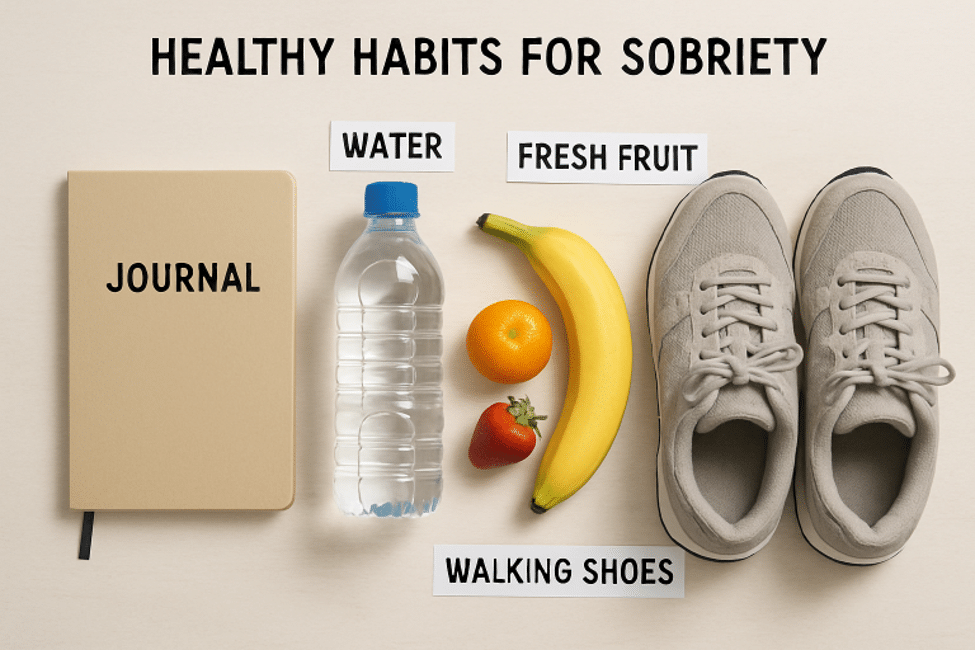Creating a Supportive Environment
Long-term sobriety thrives in environments that protect your recovery. Removing access to alcohol and drugs, establishing clear personal boundaries, and creating healthy physical and emotional spaces build a solid foundation for healing and growth. This includes preparing your home, building relationships with supportive individuals, and avoiding people or settings that may impede your progress. Connecting with organizations like the SAMHSA National Helpline offers structured support, motivation, and vital resources. Such communities strengthen positive habits and provide encouragement beyond your personal effort. Find out more about sustaining long-term sobriety here https://villakalima.com.
The Role of Mindfulness and Meditation
Cultivating mindfulness allows for greater awareness of one’s thoughts, triggers, and emotional states. Mindful meditation practices—such as focusing on the breath, mindful body scans, or guided imagery—help regulate emotions and reduce impulsive reactions to cravings or stress. According to research published by Psychology Today, regular mindfulness routines are linked to more durable recovery outcomes because they foster resilience and self-awareness.
Just a few minutes each day can make a significant difference. Begin with brief guided sessions and gradually expand your practice as you become more comfortable and attentive to your inner experience.
Nutrition and a Balanced Lifestyle
Sustained recovery is strengthened by a nutritious, balanced diet that promotes stable energy and emotional balance. Focus on meals rich in vegetables, whole grains, lean proteins, and healthy fats to repair the body and mind during early sobriety. Blood-sugar stabilization is also vital, as drastic spikes or dips can trigger irritability, anxiety, and even cravings. Staying hydrated is equally important; keep water or herbal teas on hand throughout your day.
Integrate simple cooking routines into your life, plan meals ahead, and consider speaking with a nutritionist familiar with the recovery process.
Developing a Physical Fitness Routine
Exercise is a natural mood booster and stress outlet, supporting both mental clarity and physical health. Studies show that physical activity, such as walking, swimming, yoga, or cycling, stimulates endorphin release and helps the brain establish healthier reward pathways. The Mayo Clinic notes that regular movement improves sleep and decreases depression, common hurdles during recovery. Choose activities you enjoy for greater consistency and motivation, and start with modest goals to build a routine that supports your journey.

Building Connection and Community
Recovery is easier with a strong support system and community involvement. Attending mutual-help meetings, group workshops, or regular social gatherings with fellow sober individuals creates accountability and combats loneliness. Participating in volunteer work, joining book clubs, or simply reaching out to trustworthy friends encourages positive interactions and lasting bonds. These relationships offer emotional backing when challenges arise and help anchor your commitment to sobriety.
Setting Achievable Goals
Establishing realistic, specific goals empowers you to measure progress and celebrate accomplishments. Small, daily intentions—like journaling, attending a support group, or spending a few minutes meditating—can bring structure and meaning to your recovery. Use planners, digital reminders, or goal-tracking apps for encouragement and accountability. This steady progress breeds self-confidence and lessens the allure of old, unhelpful habits.
Managing Stress in Healthy Ways
Stress is unavoidable, but responding to it in positive, nourishing ways is critical for sustained sobriety. Healthy stress relief activities include mindful breathing, progressive muscle relaxation, light physical activity, or a relaxing conversation with a sympathetic friend. Additionally, enjoying music, laughter, or quiet walks in nature can defuse tension and reset your mindset. These outlets empower you to face inevitable challenges without resorting to substance use for comfort.
Finding Joy in Hobbies and Creative Pursuits
Rediscovering or developing hobbies enriches life outside of recovery and provides strong motivation to remain sober. Painting, gardening, playing an instrument, cooking, or any creative pursuit fosters self-expression and a sense of fulfillment. These activities channel energy into positive endeavors, alleviate boredom—a notable relapse risk—and cultivate pride and mastery in new skills.
Reaching for Professional Help When Needed
No journey through recovery is without setbacks or uncertainty. Professional guidance from therapists, addiction counselors, or physicians brings expertise, structure, and proven strategies tailored to your needs. Engaging in therapy or support groups normalizes the ups and downs of recovery and provides you with valuable feedback and encouragement. Timely intervention can prevent relapse and promote ongoing growth.
Embracing Self-Compassion and Forgiveness
True recovery goes far beyond simply living without substances—it’s an ongoing journey of self-discovery, healing, and growth. By embracing self-compassion, you allow yourself to learn from missteps without harsh judgment, viewing setbacks as valuable stepping stones rather than failures. Each act of forgiveness, every healthy choice, and every step forward becomes a testament to your resilience. Though progress may not always be linear, your continued commitment reflects the strength, courage, and determination to build a purposeful, fulfilling life free from addiction.
Angela Spearman is a journalist at EzineMark who enjoys writing about the latest trending technology and business news.

